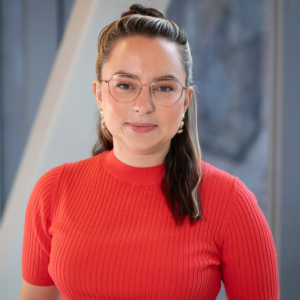
February 2024 Newsletter

February 2024 Newsletter

Student Profile
Natalia Khalatyan is a fourth-year PhD student in the Driskill Graduate Program.
Having grown up with a curiosity for science, Khalatyan decided to pursue her bachelor’s in biochemistry at University of Illinois at Chicago.
Now in the laboratory of Derek Walsh, PhD, professor of Microbiology-Immunology, Khalatyan investigates how cellular environments react to infection.
Where is your hometown?
I am originally from a small town in Russia near Moscow called Protvino and moved to Chicagoland area with my family when I was 10.
What sparked your interest in science or medicine?
Both my parents are physicists by training along with my two older brothers and we often had scientific discussions as a family when I was a child. Although I was too young to understand and be involved, my family’s curiosity sparked my love for science. Throughout my studies I gravitated towards biology and that’s been my path ever since.
What are your research interests?
I am fascinated by the cellular environment and how intricate, delicate, yet robust it is when exposed to environmental stressors such as infections. I came to graduate school wanting to learn more about the interconnection of cellular processes.
What are you currently working on?
I am currently investigating specialized ribosomes during poxvirus infection in the lab of Derek Walsh in the Department of Microbiology-Immunology.
Please tell us about a defining moment in your education at Feinberg thus far.
This is a hard question because my entire education so far has been filled with defining moments! But the one that stands out is my qualifying exam. It was incredibly stressful, but I was proud of the research proposal I created and all the hard work that I put into it. It made me realize that I do belong here and capable of more than I previously imagined.
What do you hope to do with your degree?
I hope to educate the future generation about the wonders of biology and inspire them to be curious about the world around us.